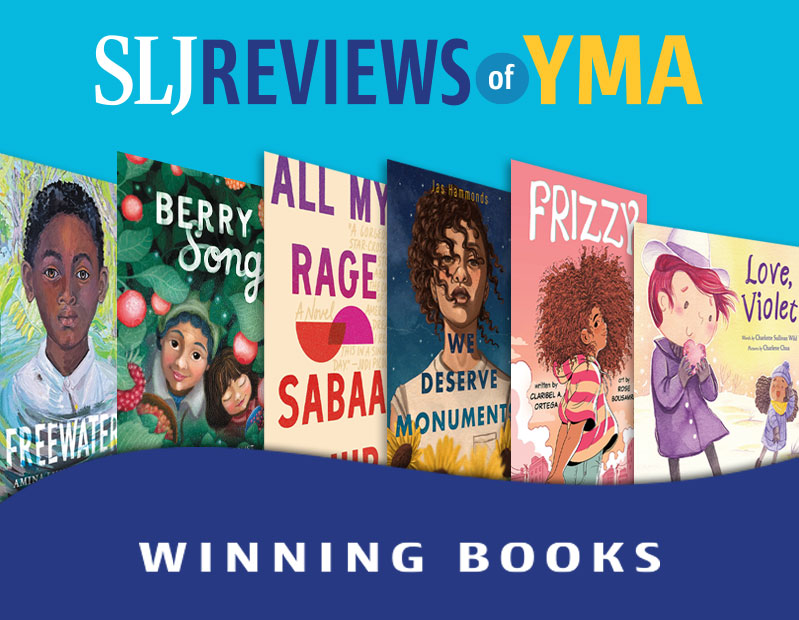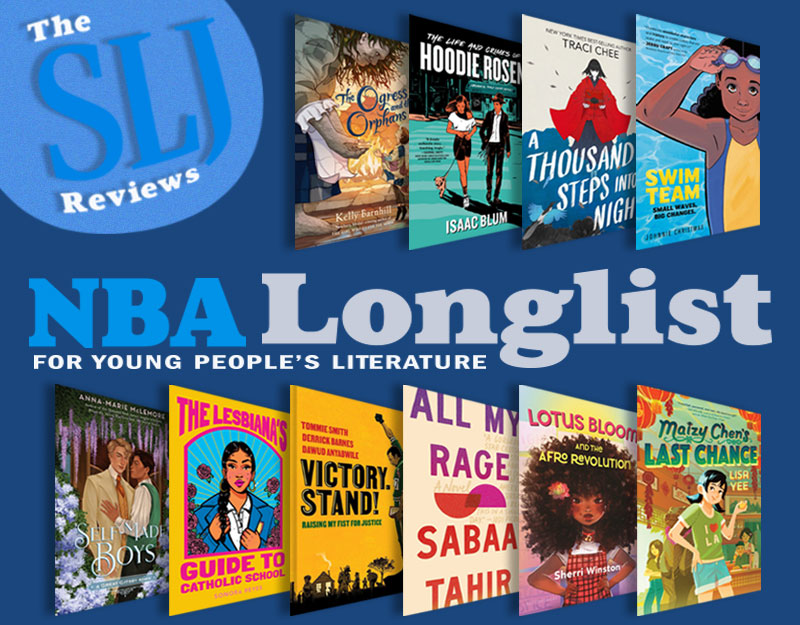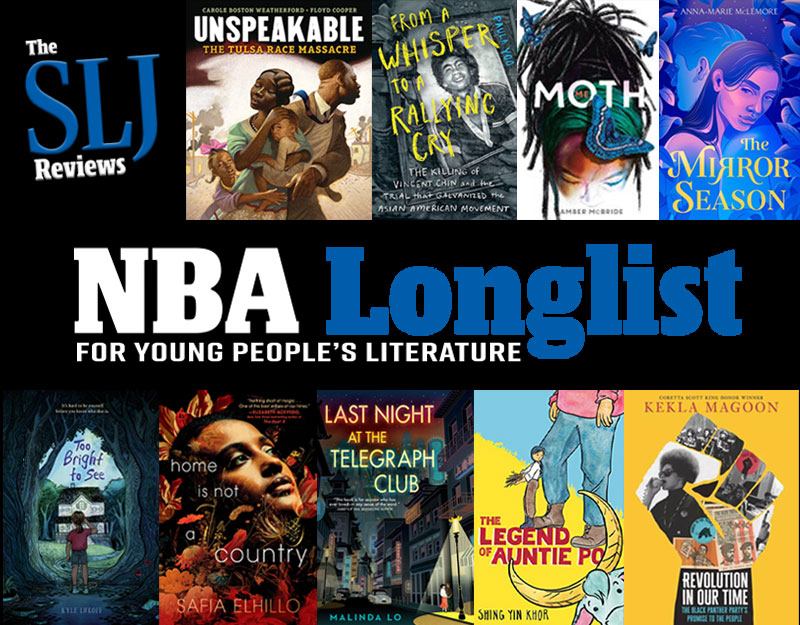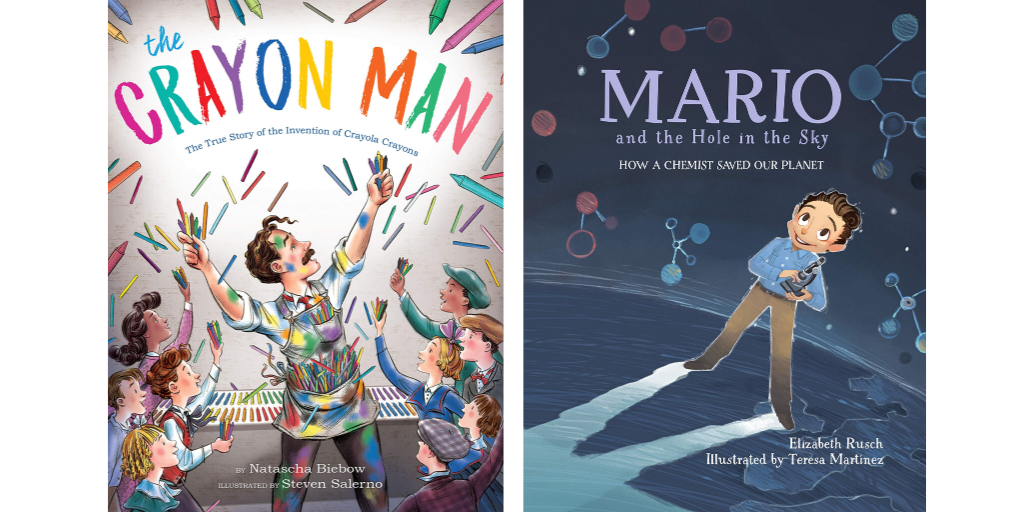Just Not My Thing
I’ve been thinking lately about the great books that fall outside of the genres that I tend to be drawn to. I often overlook those books all together until forced to give them my attention. One of the greatest things about a Mock Newbery – whether running it or just attending it – is being forced to read outside of genre preference. I imagine the real Newbery committee does WAY more of this, and also has a chance to really explore this issue in a deeper way.
I’m thinking right now about Polly Horvath’s My One Hundred Adventures which took me far longer to finish than it should have. It’s a wisp of a book in a way. It’s not exceptionally short, but it is fast-paced and full of interesting stories and characters. But it’s a bit outside of the genres I usually go for and uses some plot devices that I personally find frustrating. Had I not had the pleasure of meeting and speaking with the very charming author, and had I not seen the book amongst the suggestions of Newbery conteders, I’m sure I wouldn’t have bothered to pick up this particular title. But I’m quite glad that I did.
ADVERTISEMENT
ADVERTISEMENT
![]()
I’m thinking about this especially in light of all the conversation surrounding the Anita Silvey article. It has made me think about my own bias in reading, but also the ways in which I put those biases aside when it comes to reviewing a book and especially in terms of considering a book for a Mock Newbery short list or in a Mock Newbery discussion. I can tell excellence outside of my own personal preferences. And even beyond that, when I finally get to the end of a book that has been a challenging read to me (either because it’s a challenging book or because it is outside of the realm of what I ususally gobble down) it’s a pretty instantaneous sense of, "Wow. That was an excellent book!". And on top of that, I most certainly think about its audience – children – and how it would work for them. Not ALL of them. But any of them.
In a way, I think a book like that, for me, gets almost a more fair shot because it breaks through my preconceived notions and touches me anyhow. And this makes me start to think about how and why it was distinguished. A book that I know I’m going to love, I can read through so quickly I have to really remember to pause and look for its nuances.
Last year the title that gave me the hardest time was Rosemary Wells’ Red Moon at Sharpsburg. The year before it was Megan Whalen Turner’s The King of Atollia. And in the end each of these books led to really interesting discussions at the Mock Newbery for entirely different reasons.
And I learned a lot about how to look at a book for distinguishedness within the Newbery criteria even when it’s not my favorite book of the year.
Would love to hear your thoughts on books you had a hard time getting through and ended up either loving, or acknowledging at truly distinguished in spite of still not loving them. Any books this year or in the last couple of years that felt that way?
And what about My One Hundred Adventures? In what way have you found that book to be distinguished or lacking distinction?
Filed under: Uncategorized
About Sharon McKellar
Sharon McKellar is the Supervising Librarian for Teen Services at the Oakland Public Library in California. She has served on the Rainbow List Committee, the Notable Children’s Recordings Committee, The Arbuthnot Honor Lecture Committee, and the 2015 Caldecott Committee. You can reach her at sharon@mckellar.org.
ADVERTISEMENT
ADVERTISEMENT
SLJ Blog Network
Name That LEGO Book Cover! (#53)
Cover Reveal and Q&A: The One and Only Googoosh with Azadeh Westergaard
Exclusive: Vol. 2 of The Weirn Books Is Coming in October | News
Fighting Public School Book Bans with the Civil Rights Act
Take Five: Middle Grade Anthologies and Short Story Collections
ADVERTISEMENT








If one is properly addressing the criteria for the Newbery or the Printz, it pays to remember the words of the immortal Tina Turner, who asks us “What’s Love Got to Do With It?” The answer is: nothing. I do not particularly like Geraldine McCaughrean’s THE WHITE DARKNESS, and I am not a natural reader for Elizabeth Knox’s DREAMQUAKE, but I will defend to the death their place as examples of literary excellence last year. My journey as a Printz Committee member showed me clearly that whether or not I liked a book was beside the point. I read outside of my comfort area and interests. I did not let my gut response to a book influence whether or not I felt it met the award criteria. And, most importantly, I listened to the rest of my committee as they offered valuable insight and evidence as to a book’s worthiness and then read books again (multiple times) to try and see what they saw. And I know they did the same in regards to books I spoke about.
Exactly, Walter. Thanks for your thoughts. I hope to someday take a journey on an ALA Award committee and really get to experience this to a level beyond what I can imagine. But you are just right – whether or not I “like” or “love” a book has nothing to do with whether it deserves these awards. And it’s been a truly wonderful experience to sort of learn how to find the difference between what I like and what is excellent. It’s easy for me to find and recognize that there are things I like that are not excellent (literature wise, music wise etc etc). It’s been a much greater challenge to learn how to find the excellence in a book I don’t necessarily love.
Excellent post, Sharon. Last year on Newbery and for several years before as a member of the NCTE Notable Books in the Language Arts Committee I had to get completely past my own tastes and consider excellence in a wide variety of genres. It was a wonderful education and helped me to read more critically. (I’ve just written a longer post in to response to this on my blog.)
The flip side of this is the heartbreak involved in letting go of a book that IS “just your thing,” but clearly isn’t standing up under the criteria in comparison to others on the table.
I wonder if in a way it might be easier to argue in favor of a book that you don’t love in the committee setting? I struggle sometimes to describe specifics when I talk about a book I loved from page 1. But when I admire a book that I didn’t personally love, it’s easier for me to identify what the author did that was so successful. Maybe because I didn’t have that emotional connection, I can be more objective.
I agree, Donna. For example, I was just trying to explain to Nina why I enjoyed “The Hunger Games” which I plowed through in one sitting and wasn’t considering as a Mock contender while I read. I had a really hard time. I know that before I can really consider this book I’ll have to re-read it more slowly and really thinking about it differently. I imagine the Newbery Committee gets pretty good at this task!